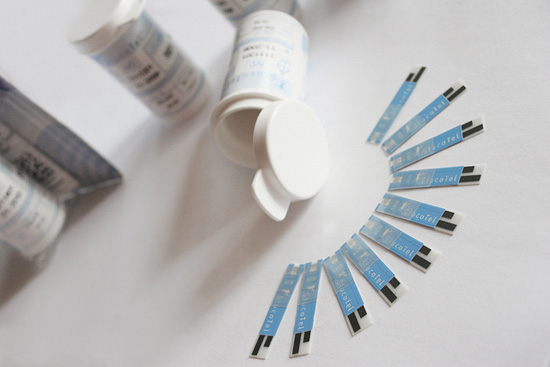
• Precancerous cells that consume sugar more common in this population.
• Prediabetes or gestational diabetes could speed development of cancer cells.
Certain cancer signaling pathways that are activated in aggressive cancer can be detected very early, even in precancerous cells, among young African-American women at high risk for breast cancer. This may allow for earlier detection and prevention of cancer.
However, the early activation of these pathways, which are linked to how the body’s cells consume and break down sugar, also raise the concern that certain conditions such as gestational diabetes and prediabetes, where the body produces more sugar, might stimulate precancerous cells promoting a conversion into cancerous cells.
Victoria L. Seewaldt, M.D., presented these study results at the Fourth AACR Conference on The Science of Cancer Health Disparities, held Sept. 18-21, 2011, in Washington, D.C.
“We see a lot of very aggressive triple-negative breast cancers among young African-American women and a very high death rate, with only 14 percent alive at five years,” explained Seewaldt, professor of medicine and co-director of the breast and ovarian cancer program at Duke University in Durham, N.C. “We wanted to figure out why this was occurring among these women.”
It was already known that aggressive cancer cells actively consume glucose and produce lactic acid, even in the presence of adequate oxygen. Seewaldt and colleagues said this shift toward lactate production is called the Warburg effect.
“One of the hallmarks of really aggressive cancers is that they start taking sugar, breaking it down and turning it into energy,” she said. “It becomes their primary source of energy and that allows the cancer cells to grow rapidly.”
Although the Warburg effect is normally assumed to be a late event in breast cancer, previous research indicated that this process occurs early, even during cancer initiation, in high-risk African-American women. Because this process is occurring earlier, the researchers theorized that they could test for it in young African-American women as a method of breast cancer prevention.
Seewaldt and colleagues looked at two independent groups of 39 and 38 high-risk premenopausal African-American women. High-risk women were normally those women who had mothers or sisters who died from breast cancer at an early age, according to Seewaldt.
“We found that in a high proportion of high-risk African-American women these precancerous cells were taking in a high amount of glucose, and they also had activation of insulin signaling,” she said. “In these women, we would worry that if they developed gestational diabetes that the condition could really stimulate precancerous cells.”
Luckily, conditions like obesity and gestational diabetes can be avoided or treated, said Seewaldt.
“Exercise, weight loss and the diabetes drug metformin provide important opportunities for preventing aggressive breast cancer in African-American women. These are things where a community approach could really make a difference,” she said.
[Photo by bodytel]